In December of 2020, Angela Maxwell completed an astonishing journey that lasted 6 1/2 years. In that time, she covered 20,000 miles on her own two feet and walked nearly the circumference of the earth. She walked around the world. Maxwell traversed four continents, 14 countries, and several islands before finally returning to her home in Bend, Oregon. She crossed deserts, snowy mountains, modern cities, and rustic villages. And while she set out solo and certainly made much of the trek by herself, she says she wasn’t alone by any means.
Despite many hardships and running into unsavory people here and there, Maxwell says she “really found this deeper sense of how small the world really is and how connected and similar we all are.”
Less than a year after completing her monumental hike, Maxwell shares her reasons for doing it, how she prepared, and how the journey changed her life.
… it felt like a bigger risk for her not to go.
Finding a New Direction
Before her walk, Maxwell generally felt unsatisfied with her life. She wasn’t satisfied with her job as a life coach and business consultant or the rat race in general. She was looking for a new direction that would allow her to form deeper connections to the world, to nature, and herself.
The inspiration for what would become her globe-trotting quest came from an unlikely source: a conversation she overheard between strangers during a weeklong watercolor class in Bali, Indonesia.
Initially, Maxwell thought the two people on whom she was unintentionally eavesdropping were talking about a man who was traversing the world on foot, and the concept struck her hard. The idea of accomplishing such a feat planted the seed of an idea in her mind. Funnily enough, it turns out, the subject of the conversation was a prison inmate, counting his steps in his limited space while mentally charting his progress in the outside world.
Regardless, the idea grew until Maxwell says it felt like a bigger risk for her not to go.
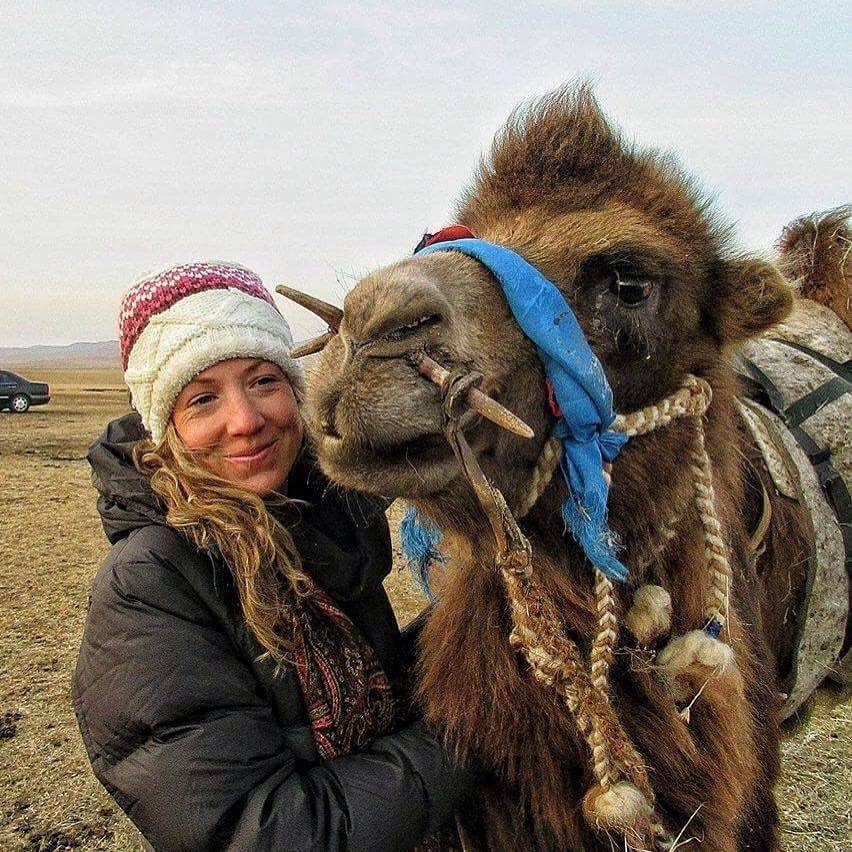
Planning and Prep
Before setting out on her journey, Maxwell was not some well-conditioned, long-distance hiker or a master of the outdoors. She didn’t know how to make a fire and had never even been hiking alone. But she was determined, and her reasons for setting out on her adventure became extremely personal — and those reasons had nothing to do with getting in the record books.
When Guinness World Records contacted her about the criteria for the fastest walk around the world, Maxwell told them she wasn’t interested in breaking any speed record. She was interested in slowing everything down and being fully immersed in things she would otherwise never get to appreciate if she were traveling any other way.
For the next nine months, she read everything she could on female explorers and long-distance walkers. She learned about what gear she should use, potential routes she could take, and the necessary safety precautions.
She read about Ffyona Campbell, an English long-distance walker who covered 32,000 km over 11 years while walking around the world. She read about Robyn Davidson, a woman who traversed Australia on camels, and about Rosie Swale-Pope, who hitchhiked from Europe to Nepal, sailed around the world, and at 59, began jogging around the world. To say she was inspired would be an understatement.
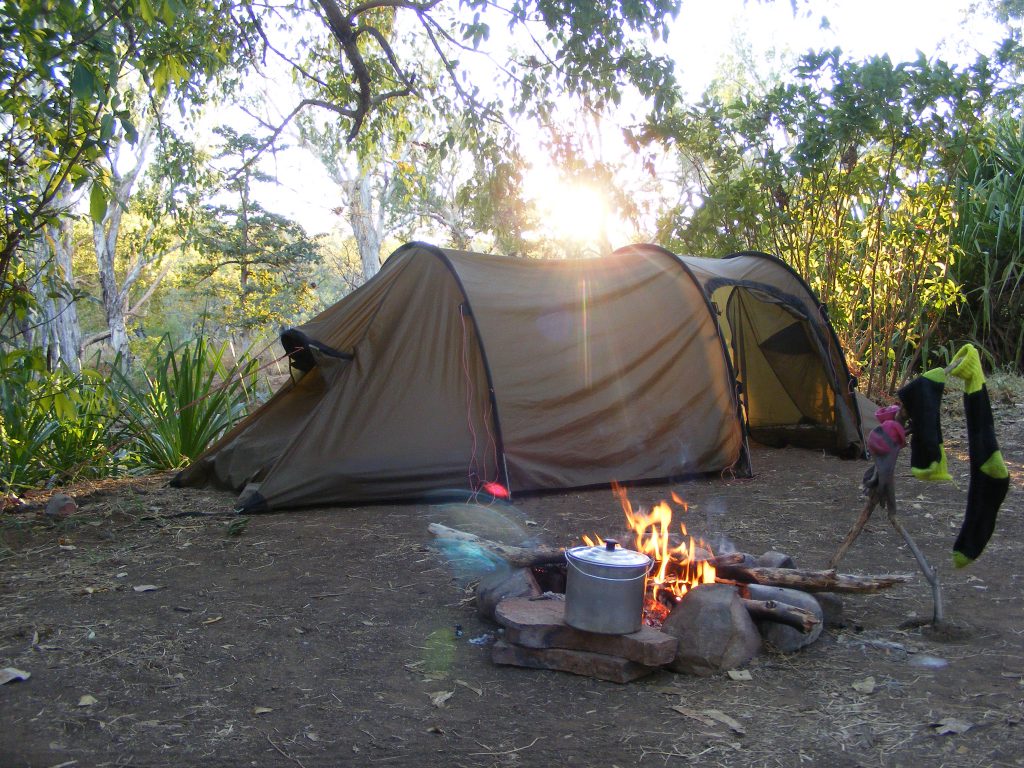
Taking the First Step
It was finally time. The day after she and her boyfriend celebrated their two-year anniversary, Maxwell quit her job, sold everything she owned, and hit the road on May 2, 2014, with just one pair of pants, one pair of shorts, a dress, two shirts, and a lot of gear.
She chose to use a cart rather than a backpack to haul her life around, which would allow her to tote about 100 pounds of gear and water while making the journey far easier on her body overall. The cart would become her constant companion that she affectionately named Athena. She decided to figure out the rest as she went.
Her trip began with a 158-mile stroll from home in Bend to Portland, where she caught a flight to Australia. Maxwell says the Australian Outback broke her down in ways she could not have imagined or foreseen.
“When I first landed, there was an overwhelming oh-my-god-what-have-I-done panic attack feeling, but I got through it,” she said. “I had headlines flashing through my head [like], ‘Silly American Girl Dies of Heat Stroke Alone in the Outback.’”
Maxwell did indeed suffer a dangerous bout of heatstroke and heat blisters pretty early in her trek, but she pressed on and was soon invited into a village of Indigenous Australians, who she came to know as friends.
“Australia stripped me of my identity in such a positive way. It built my confidence because if I could survive the desert, I could walk anywhere in the world,” she said. “It stripped me of who I thought I was going to be, of the success I was striving for. [I] allowed myself to be fully in the walk, meaning I’m here for a reason, and I didn’t exactly know why, whether it be a spiritual thing or to challenge myself.”
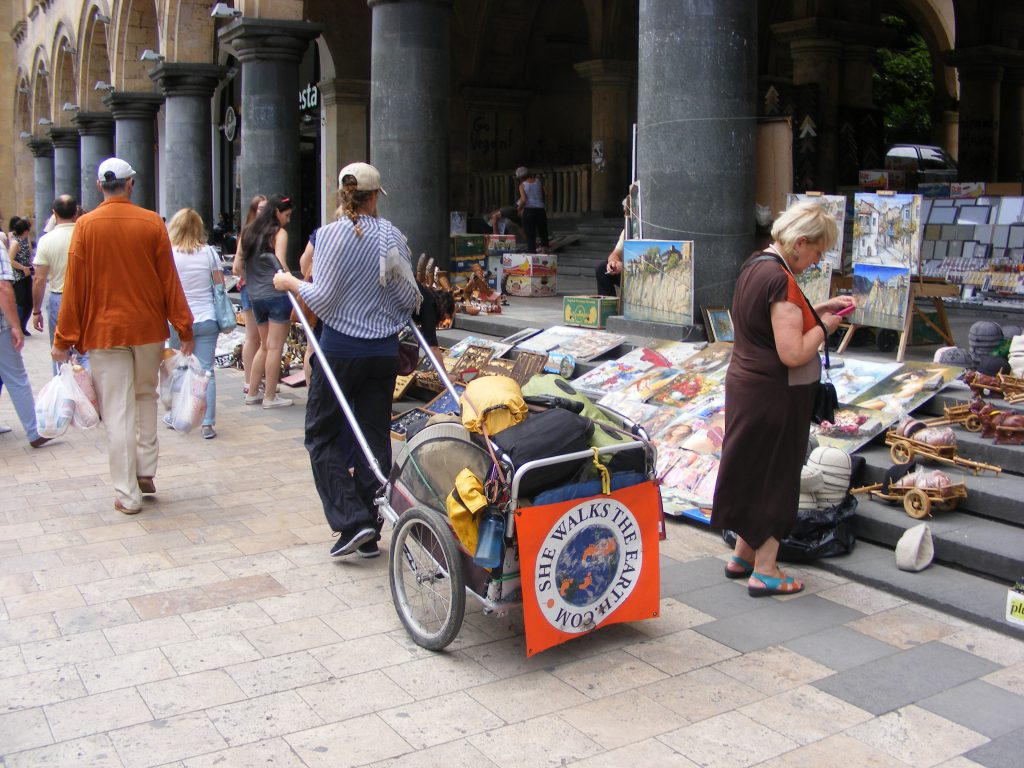
Going Her Own Way
There is no official route for travelers who wish to walk the world, so Maxwell created her own. Parts of it turned out to be fraught with peril.
First, she walked to Portland to catch her flight to Australia to meet heatstroke in the Outback. Then, she hiked in Vietnam, where she contracted dengue fever. It took over three weeks for her to recover.
Maxwell was a full year into her journey when she found herself in Mongolia, near the capital city of Ulaanbaatar, being attacked and assaulted in the middle of the night.
After surviving that, she took the Trans-Siberian Railway to Moscow, flew to Tbilisi, Georgia, and walked to Turkey before heading to Sardinia, Sicily, Scotland, New Zealand, England, and Italy.
Last summer, she returned to the United States and walked from New York City to Denver via Ohio before proceeding up and over the Rockies and back home to Bend.
Surviving on Her Feet
Maxwell went through a lot of gear on the trip and ate more instant noodles than anyone should eat in a lifetime. She kept a pace of about 15 to 20 miles a day and had a daily spending budget of just $5.
She wore out 12 pairs of shoes on her journey and had a lot of gear fail on her, but Maxwell says the two gear items that never gave her any issues were her Hilleberg tent and her multi-fuel stove.
The tent withstood everything, she said, from snowstorms in Mongolia to sandstorms in Australia and a 100 mph windstorm in Wyoming. Maxwell said she burned just about every type of fuel one can burn in her multi-fuel stove, even vodka.
On her trek, Maxwell met people, talked with them, ate their food, and encountered far more kind souls than one might imagine. She said people helped her along the way wherever she went; some even invited her into their home.
“The people and their experiences are what anchor a connection to that place. I feel very lucky that in almost every country I walked, I have some connection still there of a stranger turned friend,” she said.
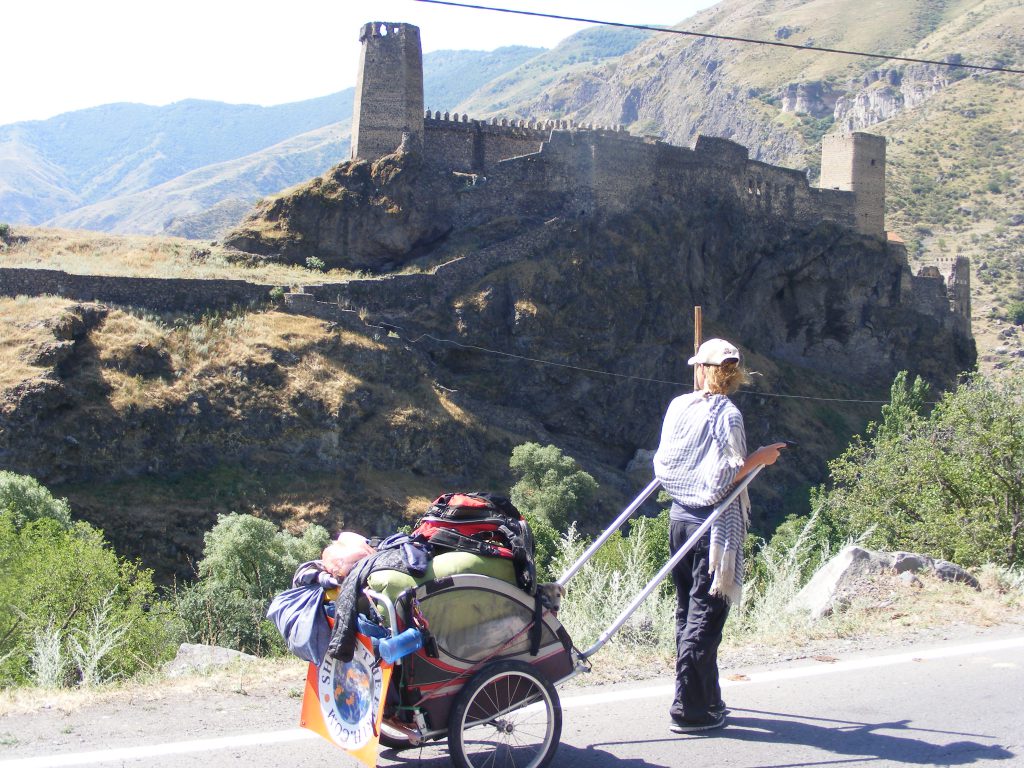
Angela Maxwell on the Wisdom of the Road
“Ultimately, everyone wants the same thing,” Maxwell said. “They want connection. They want to be loved. They want to be happy. After you cross over a border, the food, clothing, and language might change, but the essence of what we all want in life doesn’t.
“There’s a natural curiosity and connection [among] people. There’s this friendliness for your neighbor, whether that’s a neighbor next door or a neighbor across the ocean. I really found this deeper sense of how small the world really is and how connected and similar we all are.”
After it all, Maxwell said she learned one lesson that she would like to pass on to others.
“The only difference between you and someone you admire is choice,” she said. “It’s the same when we think about courage. Courage is […] something we choose. There’s something within us that we have to choose every day, even if it’s small.
“Are you going to go on your adventure? Are you going to paint today? Write today? Cook a new meal today? There’s always a choice that we have. And the only separation from that which we admire, or wish we could do, or be, or have, is just making the choice to do it.”
Read Next: 12 of the Hardest-Hiking National Parks

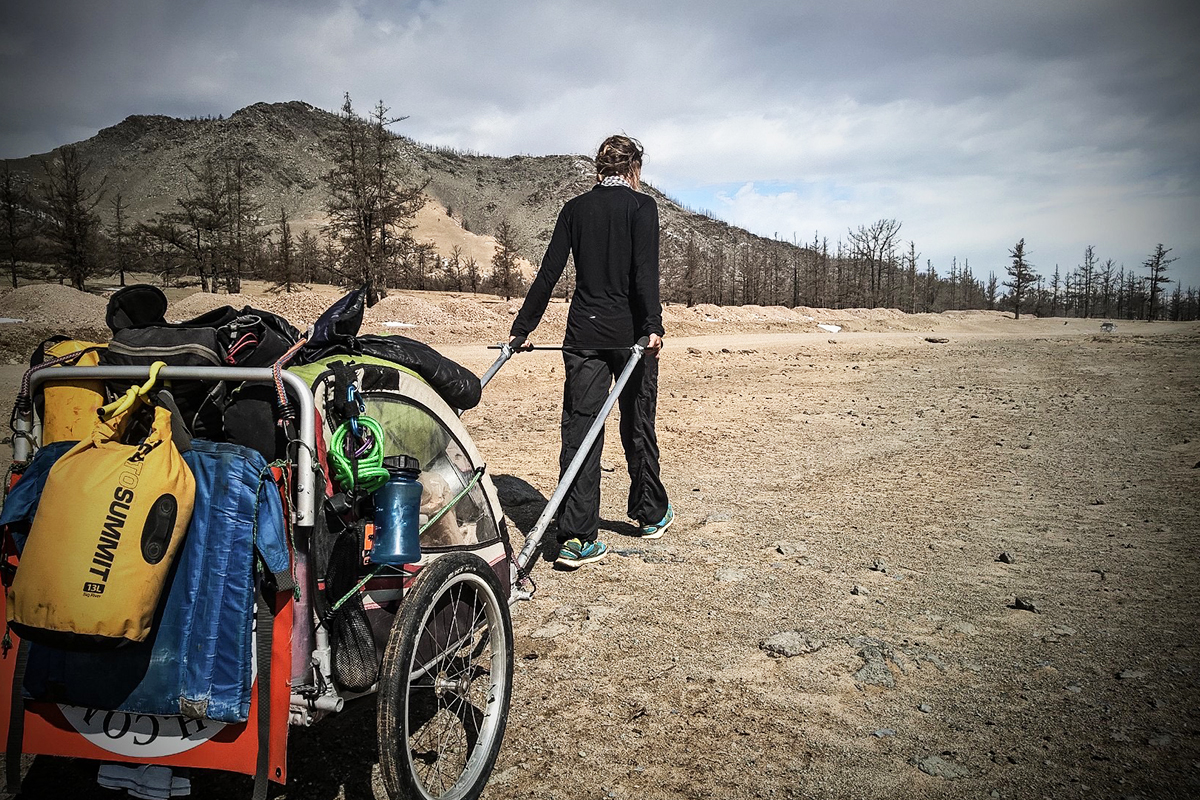

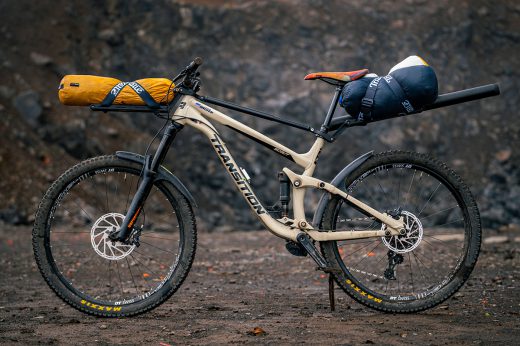
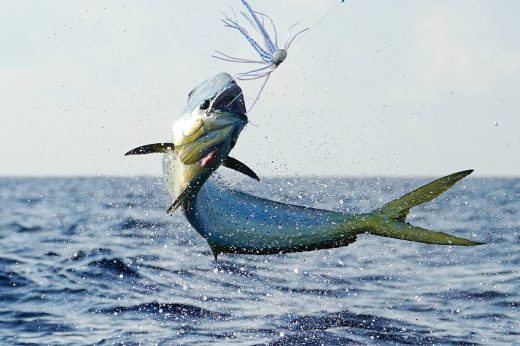
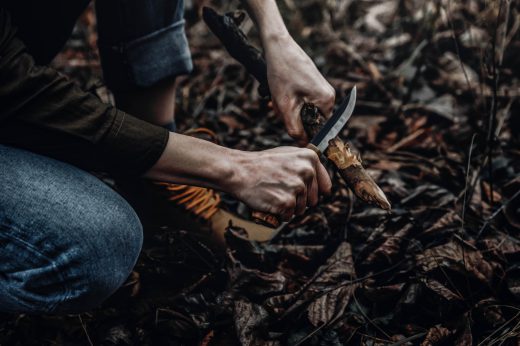


Comments